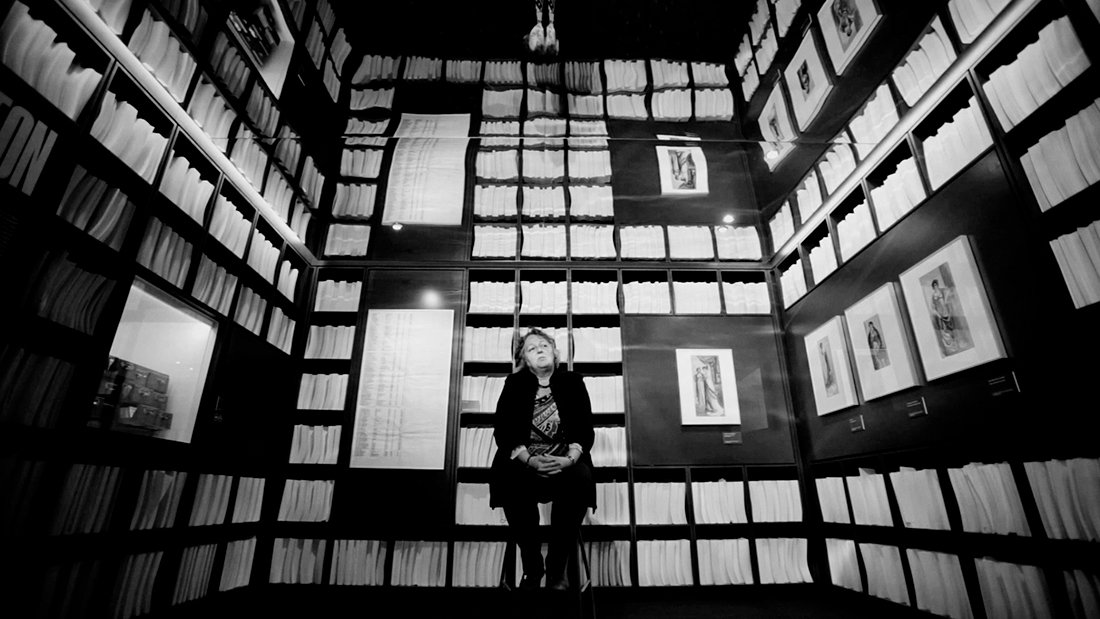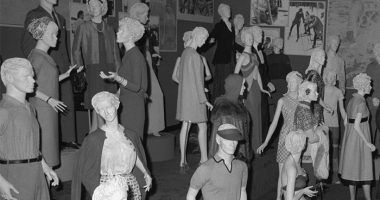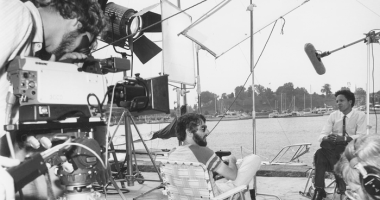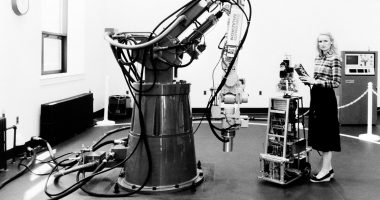Philosopher Rosi Braidotti talks about the post-human ethic, the devastating effects of neoliberal capitalism, and her proposal for affirmative resistance. Braidotti visited the Thinking Bienniale. Open City to explain her new post-anthropocentric perspective, but she was unable to avoid discussing her unease regarding the rise of the extreme right and nationalism in Europe. The underlying concern is the same: life in common and relations with others.
What does being human mean today?
Being human today is a concept under discussion. In fact, I am not sure that there is any agreed consensus on defining what human means. The Enlightenment left us with the Universal Declaration of Human Rights, but women did not have human rights, nor did Jews, blacks, or children. The concept of human has always been associated with relations of power, of exclusion and inclusion. It has never been a neutral or inclusive concept. Today, more than ever, the notion of being human is undergoing evolution. The human being has to define itself within a context of the fourth industrial revolution, with the boom in science and technology…
In other words, without having reached a definition of what is human, we are already in the post-human phase?
Yes. I don’t believe that the post-human is something that will come in the future. It is not science fiction. It is not Blade Runner, Mad Max or one of those films that postulate a new human being after the apocalypse. And nor am I a Silicon Valley transhumanist who believes we are capable of uploading our conscience into a computer and being converted into superhumans. I believe that post-humanism is rather an index to describe the stage we find ourselves at now.
“Our values, our representations, and our ways of understanding are still linked to ancient concepts of the human being.”
And what stage are we at?
We are rethinking the parameters of our humanity. We are at a stage of criticism of anthropocentrism, of the idea of a central species that controls all the others. Post-human is not a great concept. I personally don’t like it, but at the moment we don’t have a better one to designate all the research and experiments being carried out at universities and cultural centres that focus on new ways of thinking about what we are becoming. We have developed fascinating new possibilities, such as, for example, genetic manipulation, but our values, our representations, and our ways of understanding are still linked to ancient concepts of the human being. We have to be brave and discuss together, in a democratic and critical way, what we want to become. What we are capable of becoming.
You insist a great deal on this concept: becoming.
The idea of becoming is essential. We need to open up the meaning of the identity concept towards relations with a multiplicity, with others. Through opposition to the idea of identity as something completely closed, already formed, and static. We are subjects under construction, we are always becoming something.
“For the moment, the decisions on what we will become are being made by big corporations or politicians.”
And can we decide what we want to become?
We have to do so, with democratic discussions and debates, in common. Tackling new challenges together. Let’s look at the example of the emergence of robots. We know that in the next twenty years, machines will destroy millions of jobs. What should we do? Hate the robots that we ourselves have created? Or take advantage of the fact that they are useful to make our lives easier? We might even decide to charge a tax to these robots, as if they were workers. We need to have these discussions. But for the moment, the decisions on what we will become are being made by big corporations or politicians. Normal citizens are either frightened of them or excluded from them.
And are they resigned to this state of affairs?
I believe that we are not doing enough to reflect together on what is happening to us. But it is not anybody’s fault, the problem is much more complex. Furthermore, we are now going through a very complicated political era. The great social transformations have led to a lot of unhappiness and discontent, and we are in an era of populism, anger, and political violence. And within this context, theory is not very highly considered. Theorists are seen as speculators and their task as useless, while we let fake news and alternative facts to spread. The reputation of academics is very poor during periods of populism. We need to stop these attacks on universities, academics and experts. We need to develop a culture of respect for knowledge. And it seems evident that the political class is doing completely the opposite, that it is putting up obstacles to public discussions and openly lying about facts and data. They are exploiting the understandable discontent caused by the fourth industrial revolution. They are harnessing its negative effects to feed this populism and hide the positive side of the story. The negative aspects are important, but we must also heed the positive part of this great technological revolution.

How will we get through it?
The first thing we need to do is make an effort to understand what is happening to us. How does the capital function? And from there, propose the discussion on how we can better redistribute the world, breaking the monopoly of the big companies such as Google, Amazon and Apple. We have to analyse, in detail, how the concepts of power and knowledge are being reorganised and, from there, propose an alternative, a resistance based on solidarity.
But in theory we have known for years how the capital functions…
The problem is that we are talking about capitalism, but it is no longer the capitalism of Karl Marx. It is a different capitalism. Capitalism today does not need to produce anything to earn money, it can make a profit from nothing: for example, inventing a new commodity such as credit. Contemporary capitalism earns money from knowledge. Science, neuroscience, information technologies, biogenetic codes, algorithms: all that is capital. And today that is difficult to understand, even for the left. They are still proposing schemes to reform the economy that do not describe the current economic system. It is essential to understand how knowledge is being used today by power and capital.
And why is it so hard to understand?
Because we are all trapped within it. We are part of the problem. That is why capitalism is working. And for that reason, the Marxist analyses that believed that capitalism would end up collapsing have been shown to be wrong. What we have learned since 1968 is that capitalism never fails. It is transformed, it adapts and adopts any modality possible. And we have to look at it in all of its complexity. But we are trapped in the consumer model that carries on functioning nonstop. Therefore, if we are part of the problem, we must become part of the solution. We have to work together to find the margins for action.
“We have to detoxify our bad habits, in our way of consuming, of thinking, and of relating with others.”
How? It seems clear that the capital always wins…
I believe that there are ways to disassociate and put distance between ourselves and these mistaken consumer models. We have to realise that, contrary to the Marxist-Leninist idea of a global revolution, the changes that we can achieve are collective, but step by step, by distancing ourselves. Look at how feminism has shown us how to distance ourselves from male violence. Or how anti-racism has shown us how to distance ourselves from white supremacism. The point is to distance ourselves. It is like an exercise in detoxification. We have to detoxify our bad habits, in our way of consuming, of thinking, and of relating with others.
What role can Europe play in this context?
I propose to create affirmative values and to work together. In other words, we need to discuss the problems together. The optimist attitude of denying problems is no use, it makes no sense. The problems are real, but they are only a part of the photo. We have to analyse them together and calmly. And that is exactly what the current political situation does not permit: a little bit of calm to discuss the different challenges facing us, instead of polarising everything. Today everything is for or against, either death and destruction or extraordinary evolution. It seems that we cannot find a happy medium, and it is very dangerous not to have a middle ground at times like the present. For me, affirmation is creating relations that allow these discussions to be held, instead of insulting and abusing others. Let’s not be blocked by fear, let’s not be blocked by xenophobia, let’s not be blocked by nostalgia.
This doesn’t look easy…
What is necessary is a radical transformation, following the bases of feminism, anti-racism and anti-fascism. An in-depth transformation around the types of subject that we are. And that can only happen collectively, by redefining the type of world that ours is becoming. That is the plan.




mlibia restrepo betancur | 09 April 2020
excelente entrevista, magnificos conversadores, siquiera ambos son filosofos, de ahi que los temas sean bien llevados
Mario Montoya | 18 November 2020
Gracias. Excelente entrevista. Una invitación política necesaria y apropuada.
Lía Inés Lorenzo | 02 March 2021
Creo que en el análisis se pierde de vista la desigualdad entre países. Mirar una realidad socioeconómica desde Europa no es lo mismo que verla desde Latinoamérica. Habría que analizar los países productores de servicios electrónicos, internet y los que fabrican celulares…son dos realidades distintas ni que hablar de países agrícolas ganaderos, fabriles. No se, me parece que hay una realidad que está más allá de Europa, dónde las luchas de clases siguen vigentes más que nunca.
Leave a comment